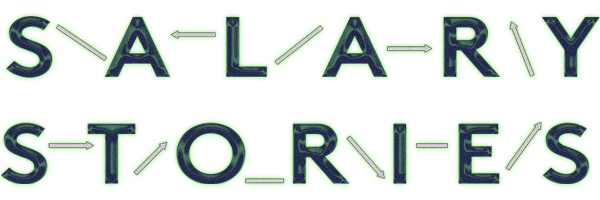ADVERTISEMENT
In our series Salary Stories, women with long-term career experience open up about the most intimate details of their jobs: compensation. It’s an honest look at how real people navigate the complicated world of negotiating, raises, promotions, and job loss, with the hope it will give young women more insight into how to advocate for themselves — and maybe take a few risks along the way.
Been in the workforce for at least eight years and interested in contributing your salary story? Submit your information here.
Previously, we talked to a graphic designer in Miami, a tech associate program manager in San Francisco, and a film and TV producer in Victoria, BC.
Age: 27
Current Location: Buffalo, NY
Current Industry & Title: Individual Tax Advisory Specialist, Federal Government
Starting Salary: $32,000 in 2012
Current Salary: $58,409
Number Of Years Employed: 7
Biggest Salary Jump: "My salary goes up in steady increments, since I work for the federal government."
Biggest Salary Drop: "My salary will be dropping by about $5,000 to $58,409 this year, but only because my new job won’t be offering overtime. I’ll be getting a higher base pay by about $4,000, and that will go up as the years go by."
Biggest Salary Negotiation Regret: "I regret not being able to negotiate much. The government has me in the General Schedule (GS) payscale, and you can’t jump up a grade unless you have experience in the pay grade before the one you’re asking for. I'm an "eight" right now. I couldn't just go to an "11" unless I had a really high degree. So I have to do a nine first and then go from a nine to an 11. You have to follow that path. That way you have to have what's called 'time in grade.'"
Best Salary-Related Advice: "Asking for what you want doesn’t make you pushy, it makes you smart."
Tell us about your disability and how it affects your daily life. "I was born legally blind. I have what's called 'light perception.' So I could tell if you turn a light off or if the sun is bright, but no shapes or shadows. It makes things a little bit harder than they have to be sometimes. There is a lot of feeling like you have to be at 120% just to prove that you're competent."
How has your disability affected your career? "I did a Ted talk on this — it's called “Blind, Not Broken.” In that, I talk about how there's a statistic that almost 70% of blind people are not currently employed, or they're underemployed. So it's very difficult to go get a job because it scares employers; it freaks them out. They don't know what kind of technology you need; they think maybe you're going to fall at work and sue them. There's all kinds of stigma attached to it. And then when you do get somewhere and you get comfortable — like, I've been at my job for seven years, and the systems all work with my screen-reader technology, which means that I can use them, and the computer will read me everything. And when you go to a new job, there's always a fear that that's not going to happen. So I think that blind people tend to stay longer or be a little bit more loyal to their employer because A) there's not a lot of employers looking to hire you, and B) sometimes, like, I have friends who've gotten jobs, and it didn't work because often they realized none of the programs worked, and they couldn’t do the job."
ADVERTISEMENT
ADVERTISEMENT







